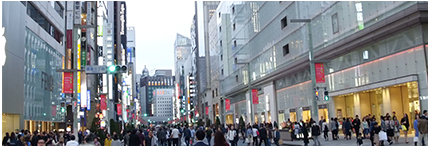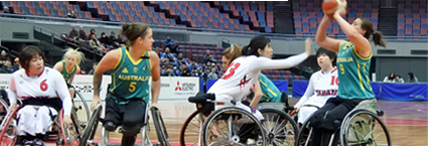High honor for Nagashima, Matsui By Robert Whiting
註釈付きの日本語訳は、ノーボーダー・スポーツにアップされています。
I see where the Abe government took time out from devaluing the yen and attempting to create inflation to announce that baseball legends Shigeo Nagashima and Hideki Matsui will receive the People’s Honor Award for their service to baseball.
Nagashima, 77, the honorary lifetime manager for the Yomiuri Giants, will be cited for his contributions to the development of Japanese professional baseball, while Matsui, 38, a former slugger for the Giants and the New York Yankees, will be recognized for raising the reputation of the Japanese game during his banner years in Major League Baseball, which included his winning the 2009 World Series MVP.
The People’s Honor Award, in case you are unfamiliar with it, is chosen by the Prime Minister’s office, on suggestions from so-called experts in Japanese society. It is given to people or groups in recognition of their wide popularity among the public and the inspiration they have given it. The award was created in 1977 and 20 people, including world home-run record holder Sadaharu Oh, have thus far won it.
It is easy to understand why Nagashima and Matsui were nominated jointly for the award. Not only were they both great stars, they also have a shared history and a close personal relationship as well.
Why Prime Minister Shinzo Abe is doing this now, given that former yokozuna grand champion Taiho was just given the award, posthumously, in February is difficult to understand, but, that aside, the recipients of the award should indeed be applauded.
Nagashima, for 17 years the Giants third baseman and cleanup hitter, was arguably the most charismatic man ever to play baseball in Japan. He joined the Giants in 1958, already a national hero from his playing days at Tokyo’s Rikkyo University, and overflow crowds attended his first practice session with the Yomiuri.
His sayonara home run the following year in the only game the Emperor Hirohito ever attended was the most dramatic hit in the history of the Japanese baseball.
He was a renowned clutch hitter who won six batting titles, five Central League MVPs and five Japan Series MVP awards ? and was said to have the fastest swing of anyone in the game. He led the Giants to nine straight Japan championships playing during a time that coincided with the spread of television.
His sunny, magnetic personality and movie star good looks, combined with his baseball skills, helped launch the modern era of professional baseball in Japan.
He seemed to symbolize, single-handedly, the new Japan that emerged after the ashes of war with its soaring GNP and air of supreme confidence. He was perhaps the most photographed person in the land and his wedding in January 1965 to a Tokyo Olympic hostess was televised live across the nation.
In the media, Nagashima was commonly referred to as “Mister Giants” or “Mister Pro-Yakyu,” appellations which were often shortened to simply “Mister.”
Nagshima retired in 1974 with a lifetime average of .305 and 444 career home runs with 1,522 RBIs. But his sky-high popularity continued during two subsequent stints as Giants manager, in which he won five pennants and two Japan Series championships.
He was a fixture on TV commercials and a prized guest at the most important social functions on the nation’s calendar.
Displayed around the Nagashima house were photos of Nagashima with the Prime Minister, Nagashima with the Emperor, Nagashima with assorted world leaders displayed and even Nagashima with the Pope.Some People joked that he was the real head of state.
Nagashima’s refusal to give in to a stroke he suffered in 2003 that paralyzed the right side of his body won him further respect from the nation that had admired him from so long. He battled back, in intensive, grueling physical therapy sessions, to regain partial use of his right arm and leg and speech.
Matsui joined the Giants in 1993, drafted out of Seiryo High School in Ishikawa Prefecture, where his 188-cm, 95-kg frame, acned skin and prodigious batting power earned him the nickname “Godzilla.”
He hit 332 home runs in 10 seasons for the Yomiuri Giants, while winning three CL MVPs and then went on to MLB where he shattered beliefs about what Japanese players could and could not do in the U.S. as power hitters.
Matsui hit a grand slam in his first game at Yankee Stadium and over the next 10 seasons compiled a .282 average with 175 homers 760 RBIs and a WAR of 18.6.
With runners in scoring position, he was statistically the Yankees most reliable hitter, a fact recognized by New York manager Joe Torre, who said flatly, “I can’t think of anyone else I’d rather have up there at the plate with men on than Hideki.”
He played in 56 postseason games in the majors with a batting average of .312, 10 homers and 39 RBIs. He was named the 2009 World Series MVP, after hitting .615 and slugging three home runs, leading the Yankees to a world championship in six games over the Philadelphia Phillies, thereby accomplishing something that no other Japanese had come close to achieving.
For the first time in history, throngs of New Yorkers could be seen cheering a Japanese, as he traveled through Manhattan in the Yankee victory parade, yelling “MVP! MVP!!”
Matsui demonstrated that a Japanese player could be adored as passionately as any American or Latin player.
As Robert M. Orr, Asian Development Bank president and longtime fan of the game on both sides of the Pacific, put it at the time, “Matsui is the equalizer in the flesh. He achieved a special type of greatness that should not be underestimated. It is people power that achieves what ‘leader power’ says it wants to achieve and usually can’t.”
He also played in two All-Star Games and had 507 home runs between NPB and MLB, a number only a few players have surpassed. He attracted so many Japanese tourists to Yankee Stadium that Matsui souvenirs far outsold those of anyone else on the team.
In his first year with the team, a baseball signed by Matsui went for $379, while a ball signed by Yankee captain and superstar Derek Jeter cost $269.
(A baffled Yankee executive remarked, “The people from Japan don’t seem to give a damn about Yankee baseball. All they want is to see Matsui get a hit, to buy a Matsui souvenir and go home feeling good about their country. Watching the other Yankees play is incidental.”)
At the end of his rookie season, the editors at People magazine were so impressed with his star power they named him one of the planet’s 23 “most lovable people,” on a list that also included Dustin Hoffman and Johnny Depp.
I first saw Nagashima play on July 19, 1962, in a game at Korakuen Stadium in which the Giants played the Chunichi Dragons. It was the first Japanese baseball game I ever attended. I paid 150 for a ticket to sit in the jumbo stands, drank Kirin beer, ate ika (squid), and watched Nagashima lead the Giants to victory with two home runs and a double, before a packed crowd of 48,000 fans. (Giants first baseman Sadaharu Oh also hit a homer.)
I was especially impressed with his quickness, fielding range and throwing arm as a third baseman. With Nagashima in the lineup, the Giants only needed one infielder on the left side of the diamond. (Yukinobu Kuroe, a Yomiuri shortstop, would later complain Nagashima routinely invaded his territory to snag ground balls headed for Kuroe’s glove.)
I saw Nagashima play many games after that and interviewed him when he was manager of the Giants. I even visited his house one time in 1982, with then-Montreal Expos catcher Gary Carter and met his family. In the genkan (entrance way) was a photo of Nagashima shaking hands with then Canadian Prime Minister Pierre Trudeau ? a nice little touch to make Carter feel at home.
Nagashima had a bubbly laugh and an infectious sense of humor. He was funny?sometimes unintentionally.
He was once asked to put the sentence “I live in Tokyo” in the past tense. Nagashima’s answer: “I live in Edo.”
He had a strange habit of mixing Japanese and English (which he could not really speak), into sentences, e.g. shippai wa seiko no mazaa. (“Failure is the mother of success.”) And he was notoriously absent-minded, as in the time he took his young son to the ballpark and then left him there when he went home.
But what I also remember about Nagashima was his sense of entitlement. At the Giants spring camp, he would tear off his jacket in the middle of a morning run and, without saying a word or looking back, throw it on the ground, expecting the people running behind him to pick it up.
Once, I was talking to another reporter in front of the first base dugout at Korakuen and Nagashima, then the Giants manager, came walking in from the outfield in our direction, headed back to the bench.
We were right in his line of fire, so to speak, but rather than go around us, as a normal person might, he kept walking straight at us, eventually forcing us to move apart from each other so he could pass.
When Nagashima applied for a credit card, in the application form box for “occupation,” he wrote simply, “Shigeo Nagashima.”
As a player, Nagashima was perhaps the hardest worker in the game. He would often go to sleep with his bat in hand and get up in the middle of the night to take practice swings, often butt naked, as his Giants roommates on the road would attest. As a manager he was as demanding as anyone in the famously demanding Japanese game.
In 1979, he held a dawn-to-dusk camp on the Izu peninsula lasting the entire month of November, which required every pitcher to run 10 km a day and every batter to take a thousand swings. More than one player collapsed from exhaustion, making use of the ambulance Nagashima had standing by.
“Bashing the players this way cultivates spirit,” Nagashima was quoted as saying at the time.
He was also known to slap recalcitrant younger players. Once Nagashima exploded in anger at American and former MLB star Davey Johnson as he emerged from the Giants bath with just a towel wrapped around him.
It was the last game of the All-Star break in 1976 and Johnson had announced his intention to return to the States to see an American specialist about a nagging hand injury he had incurred that would not heal.
Nagashima had refused to give Johnson permission to go when Johnson first broached the subject and he was incredulous that Johnson would defy him, not to mention insulting the Japanese medical profession as well. Certainly, no Japanese player would ever do that.
“Are you really going?” Nagashima asked, his face red with anger.
“Yes,” Johnson said, “But I will be back in a few days.”
Nagashima accused Johnson of deserting the team. He ripped off Johnson’s towel, pointed at his groin and yelled, “Liar, if you had two balls you would stay. But you’re not a man, you’re a woman.”
Johnson felt humiliated. “I almost punched him,” he said “But I realized that he just wasn’t capable of appreciating my situation.”
Johnson returned and played well for the rest of the season, helping the Giants win the pennant, but the relationship had been poisoned. Because of that and other disagreements with Nagashima, Johnson did not return for the following season.
Matsui was memorable for other reasons. Unlike Nagashima, he never refused autograph or interview requests, never lost his temper, and always had a kind word for everyone. He preferred the company of sportswriters to ballplayers because he thought they were more interesting.
In New York, he became the first player in the history of the Yankees to invite the New York press to dinner. He did this in 2003 during spring training in Tampa. At the end of the evening he gave each of them — about 15 in all — presents, some of them from his extensive collection of adult DVDs, something which Matsui, who was once a judge in a porno contest, did nothing to hide.
When I interviewed him at Legend’s Field he told me frankly that he was surprised that everyone didn’t think that all men had a porno collection.
Matsui and Nagashima, their relationship was special. In his early years with the Giants, he would frequently go to Nagashima’s house in the morning for batting instruction.
“Concentrate all your nerve endings on the sound of the bat when you swing it,” Nagashima would say cryptically. Nagashima could tell by the sound of the swing whether it was a good one or not.
Matsui called the sessions with Nagashima among the best moments of his life. After he joined the Yankees, he would sometime call Nagashima long distance, lay down the phone and take a few swings for the master to listen to and evaluate. I don’t know of any other ballplayer who did that.
In 2006, he broke his wrist while diving for a ball in the outfield missing a big part of the season. He surprised Americans by apologizing to Yankee fans and his teammates for letting them down, initiating a round of soul-searching in the mainstream U.S. media.
Tom Plate, columnist for the Los Angeles Times, wrote, “In the age of the coddled overpaid, agent-protected, totally obnoxious superstar athlete, Matsui from Japan exceeded his greatness as an individual player with great dignity as a human being and as a team player. . . . The Matsui ‘I’m sorry’ rang across American like the ringing of some new liberty bell.”
It is fitting that Nagashima and Matsui share the People’s Honor Award.
(Special To The Japan Times Apr 7, 2013)







